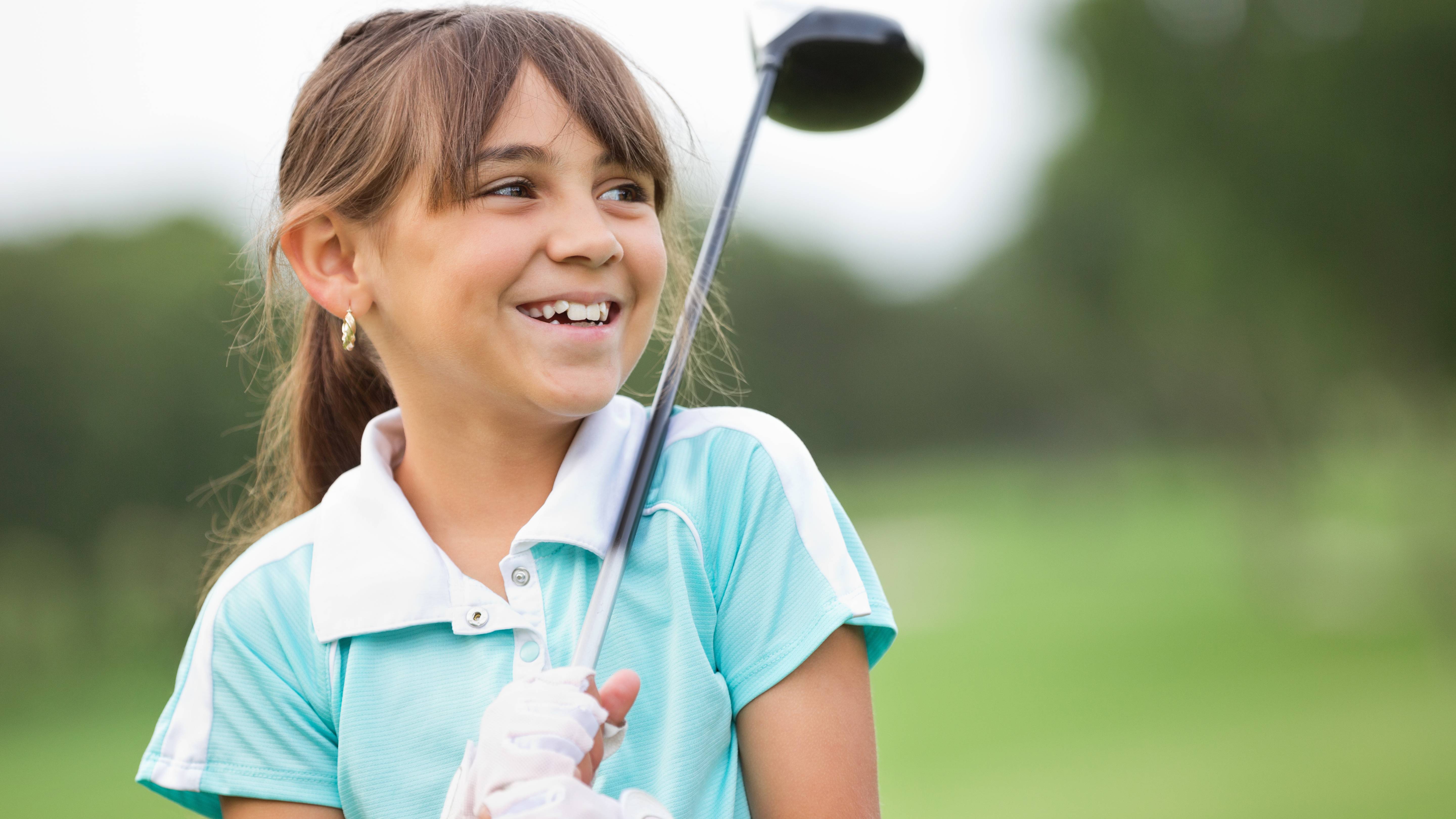
Most golfers are probably familiar with the iconic footage of Tiger Woods’s TV appearance at just 2-years-old, showing off his already impressive skills and fluid swing. Then there was Rory McIlroy, who at 9-years-old was was also introduced via television as a ‘child prodigy,’ proving his worthiness of the title by chipping balls into a washing machine, a stunt which TaylorMade later recreated as a promotional challenge for their staff players to take part in.
So ingrained in the collective golfing consciousness are these clips that it sends a message to any parents of future golfing stars - If you want your child to be the next Tiger or Rory, you have to start them young!
Tiger and Rory were outliers in that era, golf was a sport for middle-aged to older men, not fresh-faced, skilful youngsters. Fast forward 45 years though and those appearances might not gain quite the same buzz and traction today and that’s because there would be competition, lots of competition.
Social media is not a new thing, but the evolution of the influencer/follower dynamic has now grown to unprecedented levels; influencer marketing is a billion-pound/dollar industry. We have witnessed many golf influencers climb from humble beginnings of self-made, edited content, to becoming household names, with brand deals, podcasts and TV presenting gigs.
Fair play to them I say, having dabbled in editing golf content, I admire the time and consistent hard work they have put in to achieve those rewards. Their social media popularity, combined with the post-Covid golfing boom has contributed to help present a fresh image of golf as a fun, accessible and (dare I say it) cool sport. Yet this boom has resulted in another consequence… the rise of the junior golf influencer.
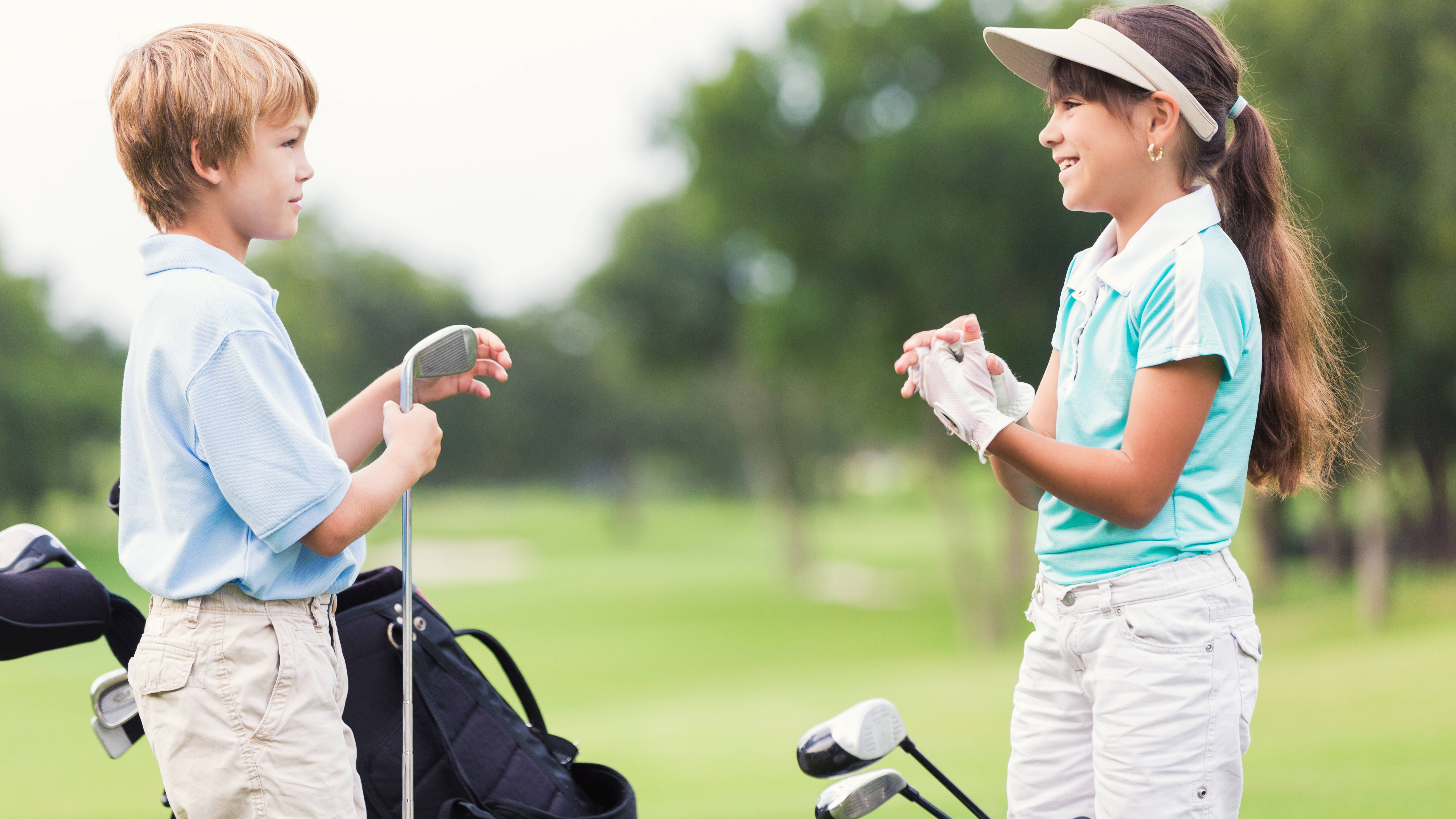
I’ve had a private Instagram account for years, but it was only when I set up my professional profile for coaching that the magical algorithms did their work and started directing me to follow other accounts. That’s when I began to see more and more junior golf accounts pop up.
I brushed off the conflicting feelings I had at the time. There were so many of them, maybe it is good for the game. When I interviewed Georgia Hall and asked her about the ‘parent managed’ junior golf accounts, she thought it was a good thing to showcase the game to the younger generation. I understand that point of view, but still I had that unsettling feeling that being displayed on a public forum isn't entirely beneficial for the child.
So, I started to look into it, and like so many contentious issues today, something that can seem completely harmless and all good fun, differs in reality. I spoke to social media managers, campaigners for children’s internet safety and professional coaches. So, allow me to get you up to speed…
UK Child Performers Laws And Protections
Ever been to see Matilda at the theatre? Well, if you have, you may have been treated to any one of the four girls cast who take turns to play the leading role. That is due to the child protection and labour regulations. It essentially ensures that children cannot be overworked, have appropriate breaks and protects them from exploitation. Similar legislation for children creating internet content does not yet exist. In October this year The Online Safety Act was approved and launched, but this has more focus on protecting children from the harm of what can be viewed online, not on what they produce.
Dr Francis Rees, a lecturer in Law at Essex University, explained about the gap in the law. "Parents are unwittingly placing themselves into a complex socio-economic framework and, in the absence of any specific protective legislation, must assume responsibility for safeguarding their children from the harms that child influencer labour could incur… There is currently no specific child influencer legislation that would provide protection from the full range of these potential harms.”
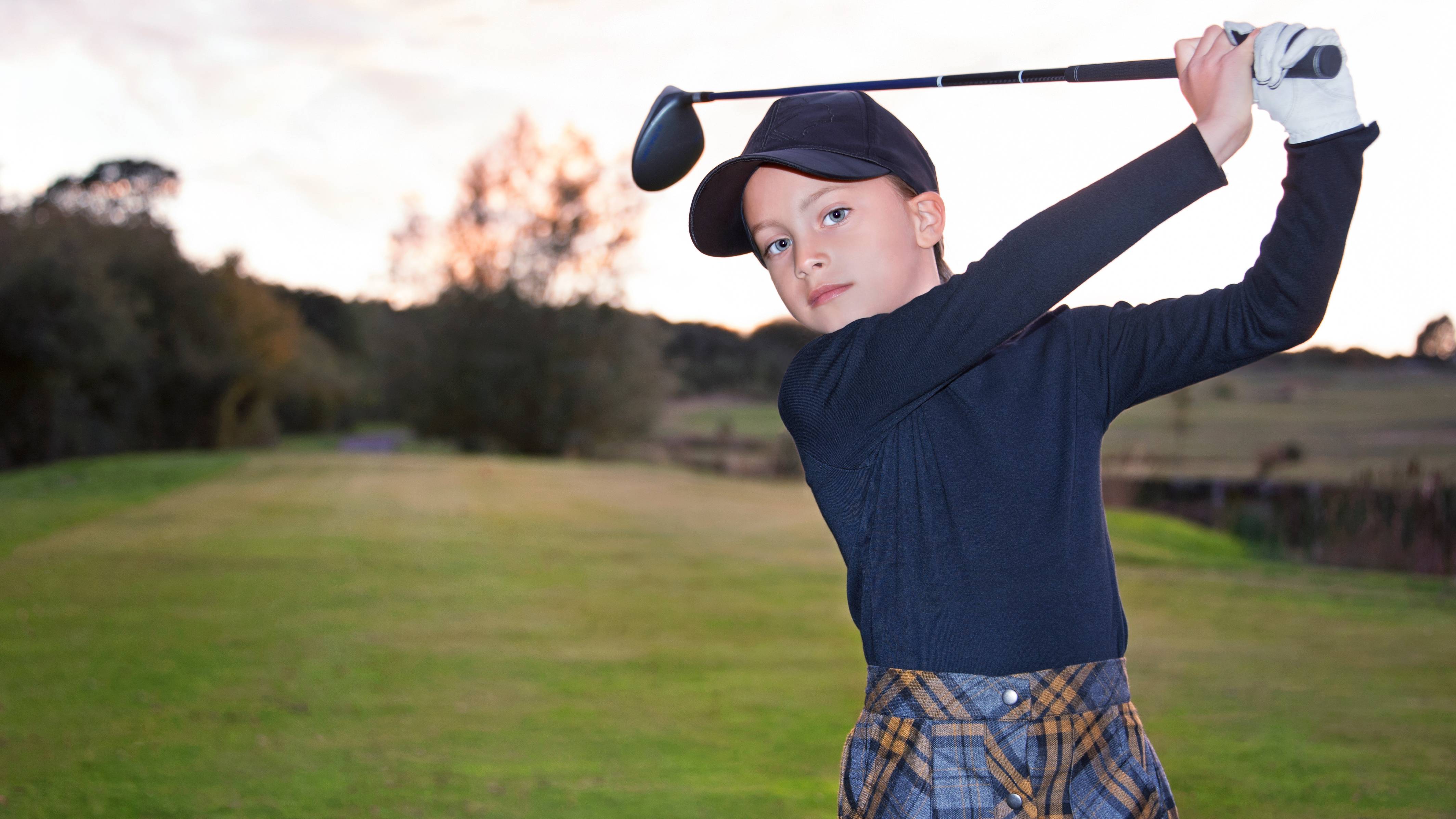
Scott Guthrie, Director General of the Influencer Marketing Trade Body further highlighted how we are falling behind in creating legislation.
“In France, influencers under 16 receive the same protection as child actors and models. Their earnings must be held in a bank account until they turn 16. They have the right to be forgotten – i.e social media platforms must take down content on the child’s request.”
Currently it is undeniable that children “working” in social media currently have scant protections. At least when children are on stage, they get to leave the spotlight and go home, but in the world of the influencer there is no leaving the stage because your life is the stage and the performance. Which leads me to my next concern…
Can Children Ever Consent To Being Content?
Children are often simply too young to understand the ramifications of what they are consenting to. These accounts are not just the odd golf shot being sent to family and close friends, they are full access to the children’s lives, what they eat, wear, how they practice and also follow them as they play. The digital footprint that they are creating will likely contain far too much information about where they live and spend their time, which raises safeguarding concerns.
Emilie Silverwood-Cope, a social media strategist and Parenting Columnist expressed her concerns to me:
“There's just something that doesn't sit right when you see parents using their children's lives for content and clicks and ultimately brand deals. Once you've monetised your family life on social media you are in Truman Show territory. What's real and what isn't and what is appropriate to share? It feels there's nothing that's off limits - and the loss of privacy can't be rolled back. I'm not sure it's especially healthy for children's lives to be mined for content.”
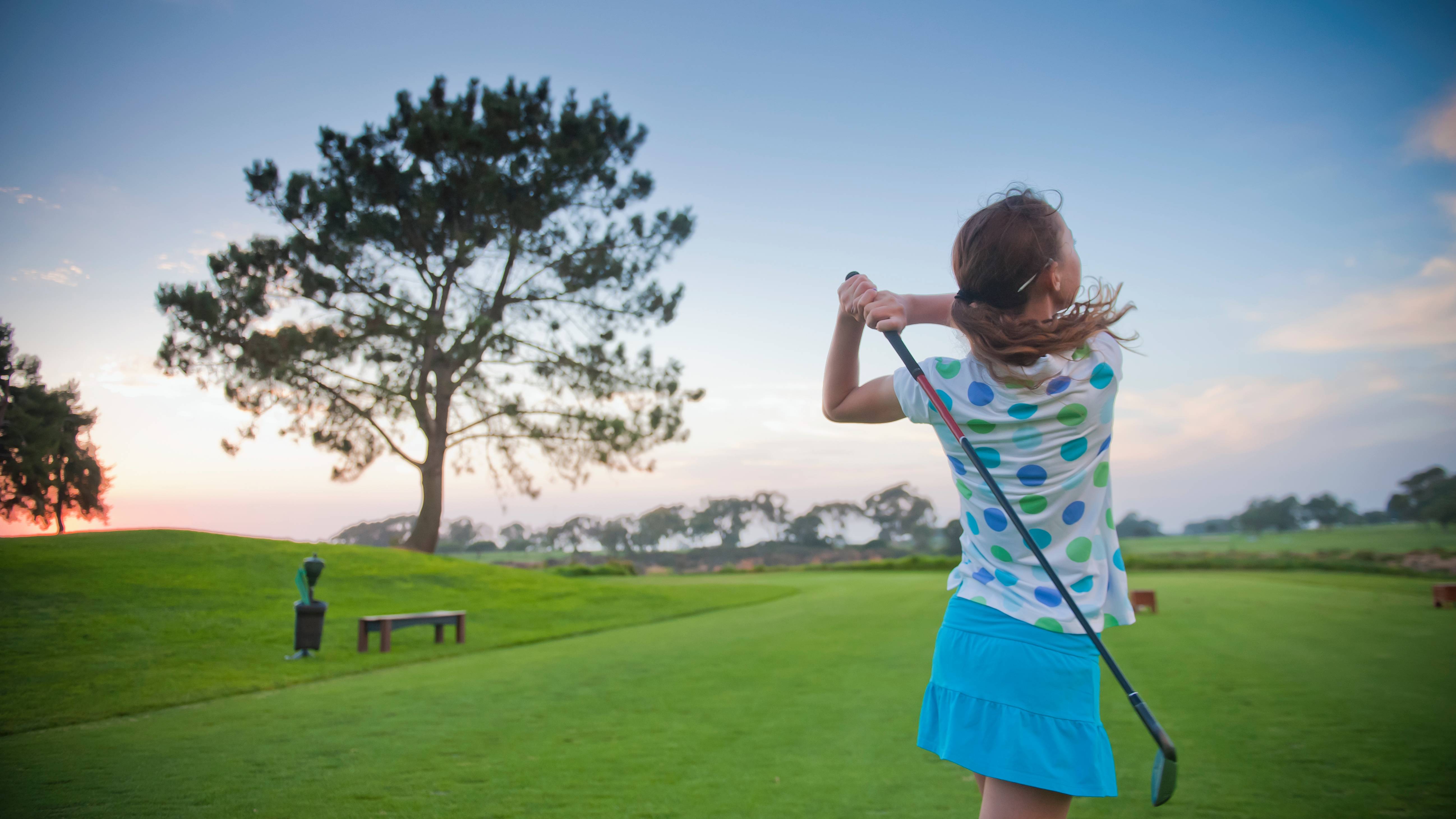
Who Are These Accounts For, Who Watches Them?
Currently Instagram requires you to be 13 years of age to have an account, but that is difficult to enforce properly. The average user of Instagram is between the ages of 25–34 years of age and the demographic of golf content consumers are predominantly men.
The fact that people can save and repost images of these accounts is worrying. Of course, the purpose of setting up any social media account is to say, ‘look at me or look at this,’ but the algorithm will quickly work to push targeted advertisements. If success comes knocking the brands who perform well with your audience will be throwing free products at any influencer. It’s estimated brands get five times the return from influencer marketing compared to the traditional forms. Talking of making money…
What Happens To The Gifts And Earnings?
There’s that lack of any laws or protections again. Child actors and performers have their earnings set aside for them to have access to when they come of age. Social media earnings come down to the moral compass of the parent as to what happens to the earnings, which is already questionable at this point.
There is big money to be made. For smaller accounts it can be £100 for a post, for larger accounts it can be thousands. Land a contracted sponsorship deal and it’s big bucks, enough for parents to go down to part-time or give up work altogether. Brands, clubs and venues should think carefully about encouraging ‘parent managed’ accounts posting and promoting their products while digital content creation remains such unregulated territory.
Isn't It Just A Bit Of Fun?
I do believe many accounts begin with good intentions from proud parents but when followers and likes accumulate, brands with collaboration offers start appearing in the DMs.
Children’s behaviour will be managed. When that phone comes out, shots will have to be played again and again to capture the perfect one, poses and expressions will be dictated. That isn’t fun, that’s work.
On children’s accounts as young as seven, I’ve seen ‘Athlete/Sportsperson’ or ‘Future Pro’ in their bios - no pressure then! If a family is relying on their children for financial stability, gifts, perks and accolades, it’s highly likely that the child does not have a choice about if they participate or not. Where is the room for the child to say no, or that they want to give up or try a different sport.
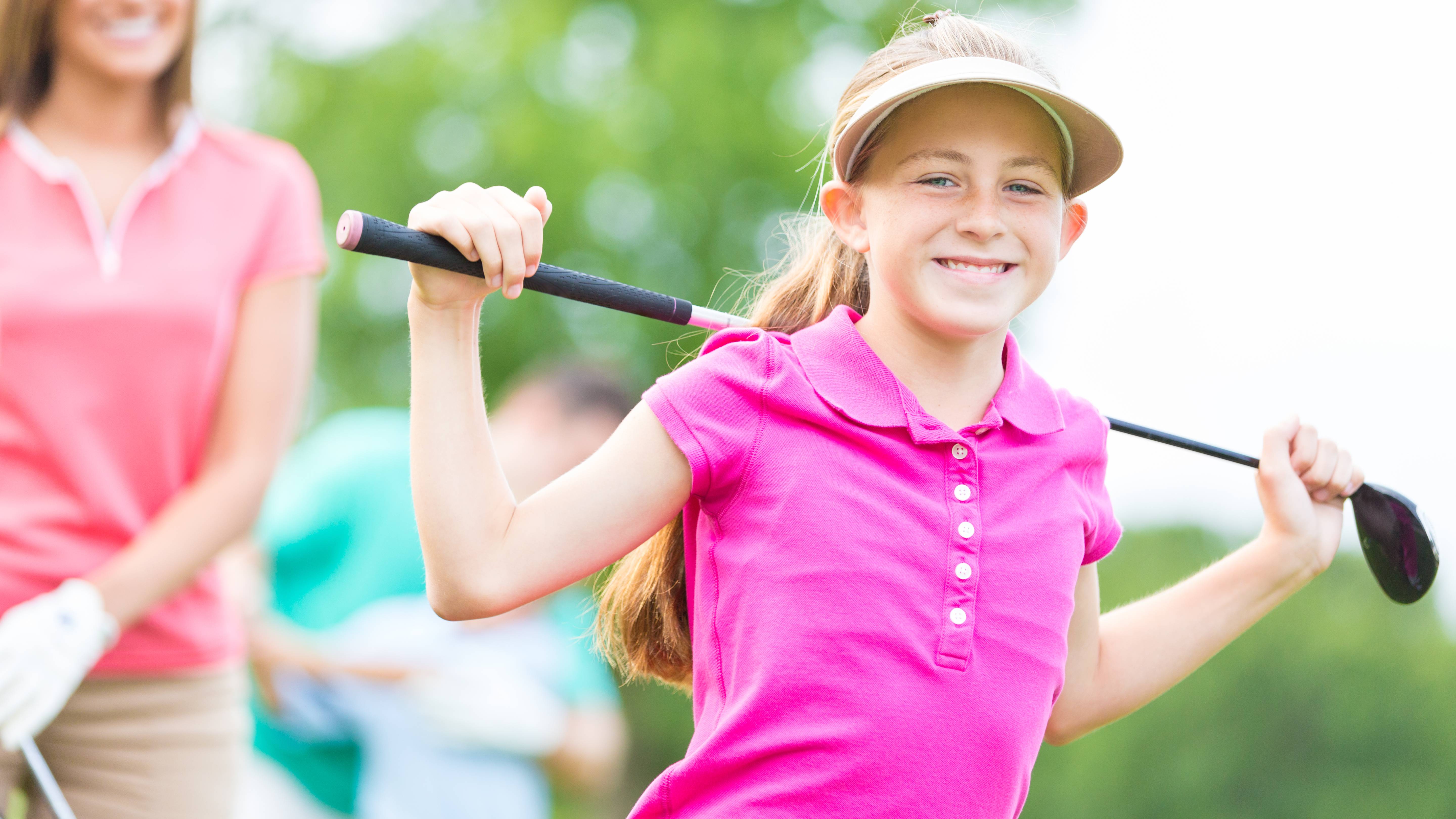
Another universal truth is that children grow up. If I asked my 5-year-old if she would like to set up a YouTube account talking about her Barbie collection she’d love it, but when the teen years start, it’s highly unlikely she will feel the same way. It could lead to real anxiety and embarrassment and possibly even make her susceptible to bullying.
Then there is the problem of having young people attach their self-worth to a number of likes and followers or comments left under their videos (that’s hoping the comments are nice of course). They will have their life experiences ranked in popularity by complete strangers which then will go on to influence the type of content that keeps getting made. It’s a perpetual cycle, but what happens when their likes take a dip, the free gifts and paid post offers dry up, where does that leave their self-worth and mental health?
One Sport Specialisation Pressure
We are bombarded on the internet by people doing incredible things. Young children with amazing talents are always popular, hence the success of young Tiger and Rory’s TV debuts. This adds the pressure for children to be better, younger than ever before at golf, but in the long-term, is that a good thing?
You can see the logic in believing an elite level can be reached by adopting intense, year-round training at one sport. You’ve got to reach those 10,000 hours, but is it good for the child, or a one-way ticket to injury and early burnout?
So few make it all the way to the top, is it worth children missing out on the joy and enrichment other sports have to offer? For the sake of balance even if they are good enough and they do make it, it will be because of their ability to hit that ball into the hole, not their popularity. You cannot grift your way to making it on tour.
Where Do We Go From Here?
We are living in times, where protection laws are lagging behind culture. It may seem like this is catastrophising something that isn’t an issue, but when you have parents and children feeling like they are missing out by not documenting their golfing journeys on social media, the best interests for the child can be lost in the never-ending pursuit of more. More followers, likes, and brand deals. The only winners end up being social media platforms mining for data to sell and the brands they are pushing through targeted advertisements.
Children have no choice but to rely on their parents and guardians to always act in their best interests for their well-being and safety and not to exploit their image. So, before you comment or click ‘like’ on what might seem like an innocent account of a proud parent showcasing their child, look behind who is running it and who is benefiting, because I highly doubt it is the child starring in the video.







